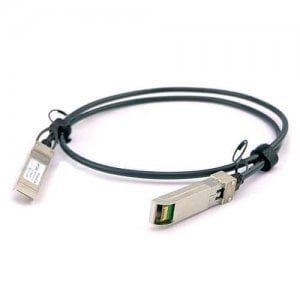Why Entrepreneurs Are Choosing the UAE for Business Setup in 2025
Why Choose the UAE for Business Setup?
The United Arab Emirates has established itself as a global magnet for investors and entrepreneurs, offering a strategic location that bridges Europe, Asia, and Africa. Its zero-income tax policy, robust infrastructure, and liberal trade regulations make it one of the most business-friendly destinations in the world. Companies like Emarito have capitalized on these benefits, thriving in a competitive yet supportive environment that nurtures growth and innovation.
The UAE government continues to enhance its legal and regulatory frameworks, promoting transparency and efficiency. With over 45 Free Zones, an advanced logistics network, and access to a skilled multinational workforce, the UAE attracts thousands of new ventures each year.
Types of Business Entities in the UAE
Understanding the legal structure options is essential for establishing your company. The UAE offers several entity types tailored to different business needs.
Mainland Companies
Mainland companies are licensed by the Department of Economic Development (DED) in each emirate. They enjoy the flexibility to operate across the UAE and globally. Thanks to recent legal reforms, many sectors now allow 100% foreign ownership, removing the previous requirement for a local partner or sponsor. Businesses such as Emarito benefit from this change, enabling complete control over operations and decision-making.
Free Zone Companies
Free Zones offer exclusive benefits like 100% foreign ownership, full profit repatriation, and no customs duties. Popular Free Zones include Dubai Multi Commodities Centre (DMCC), Abu Dhabi Global Market (ADGM), and Jebel Ali Free Zone (JAFZA). Startups and SMEs often opt for Free Zones due to their affordable packages and ease of setup.
Offshore Companies
Offshore companies are primarily used for international business, asset protection, and tax planning. They are not permitted to trade within the UAE but can hold real estate, own shares, and operate bank accounts. Jurisdictions like RAK ICC and JAFZA offer flexible offshore company formation services that appeal to international entrepreneurs.
Steps to Form a Company in the UAE
While each jurisdiction has specific requirements, the general steps for business formation are largely consistent across the board.
Define Business Activity
The chosen business activity determines your license type and the authority you’ll work with. Activities can range from trading and consultancy to manufacturing or services.
Choose a Legal Structure
Select the most suitable legal form—Limited Liability Company (LLC), Sole Proprietorship, Civil Company, or a Branch Office—based on your goals and ownership preferences.
Register the Trade Name
Your trade name must be unique and comply with the rules of the licensing authority. For instance, the name Emarito reflects both originality and brand clarity, which helps in market positioning.
Apply for Initial Approval
Initial approval signals that the government has no objection to your proposed business. Depending on the activity, additional approvals from regulatory bodies may be required.
Draft and Notarize MOA
The Memorandum of Association (MOA) defines the ownership and operational structure of the company. It must be signed and notarized as part of the legal setup.
Secure Office Space
A physical address is a mandatory requirement. Free Zones offer flexible options like shared desks, while Mainland companies must lease office space aligned with their business type.
Obtain Business License
Upon completing all documentation, the relevant authority will issue your business license. This license is your official permit to begin operations in the UAE.
Costs Involved in Setting Up a Business
Setup costs vary depending on the jurisdiction and business type. Free Zone packages typically start around AED 10,000 and can include everything from office space to visa quotas. Mainland company formation can cost more, primarily due to office rent and possible sponsorship fees.
Companies like Emarito, which choose a strategic mix of flexibility and scalability, often find the UAE’s pricing competitive and value-driven.
Visa and Immigration Procedures
Once your company is registered, you can apply for UAE residence visas for owners, employees, and dependents. The number of visas permitted depends on the office space and type of license. Free Zones simplify this process through bundled visa services.
Steps include medical testing, Emirates ID registration, and residency visa stamping. Business owners typically receive investor visas valid for up to three years.
Banking and Financial Considerations
Opening a corporate bank account in the UAE is essential. Banks require documentation such as a valid trade license, business plan, and proof of address. Some may request an in-person interview with shareholders.
Choose a bank experienced with international businesses and modern financial tools. For example, a company like Emarito may require multicurrency support, online banking, and global transaction capabilities.
Compliance and Legal Obligations
Maintaining legal compliance is crucial for sustainable operations. Key responsibilities include:
- Annual license renewals
- VAT registration and filings (for qualifying businesses)
- Annual audits (mandatory in most Free Zones and Mainland jurisdictions)
- Timely visa renewals and employee insurance
- Accurate bookkeeping and financial recordkeeping
Non-compliance can lead to penalties, legal complications, or even license suspension.
The Future of Business in the UAE
The UAE is continually evolving to become more business-centric. Programs like the Golden Visa attract top-tier talent and long-term investors. Digital platforms streamline licensing and labor processes, while updated commercial laws support startups and multinationals alike.
Emerging sectors like green energy, fintech, AI, and healthcare are poised for significant growth. Companies such as Emarito are well-positioned to take advantage of these opportunities as the country advances toward its UAE Centennial 2071 vision and the Dubai Economic Agenda (D33).
Conclusion
Establishing a business in the UAE offers unparalleled access to global markets, tax advantages, and a pro-business ecosystem. With clear steps, supportive policies, and thriving sectors, the country continues to be a preferred destination for entrepreneurs worldwide. Whether you are launching a startup or expanding an existing enterprise, following a well-informed approach—like that taken by Emarito—can pave the way for lasting success in this dynamic region.






